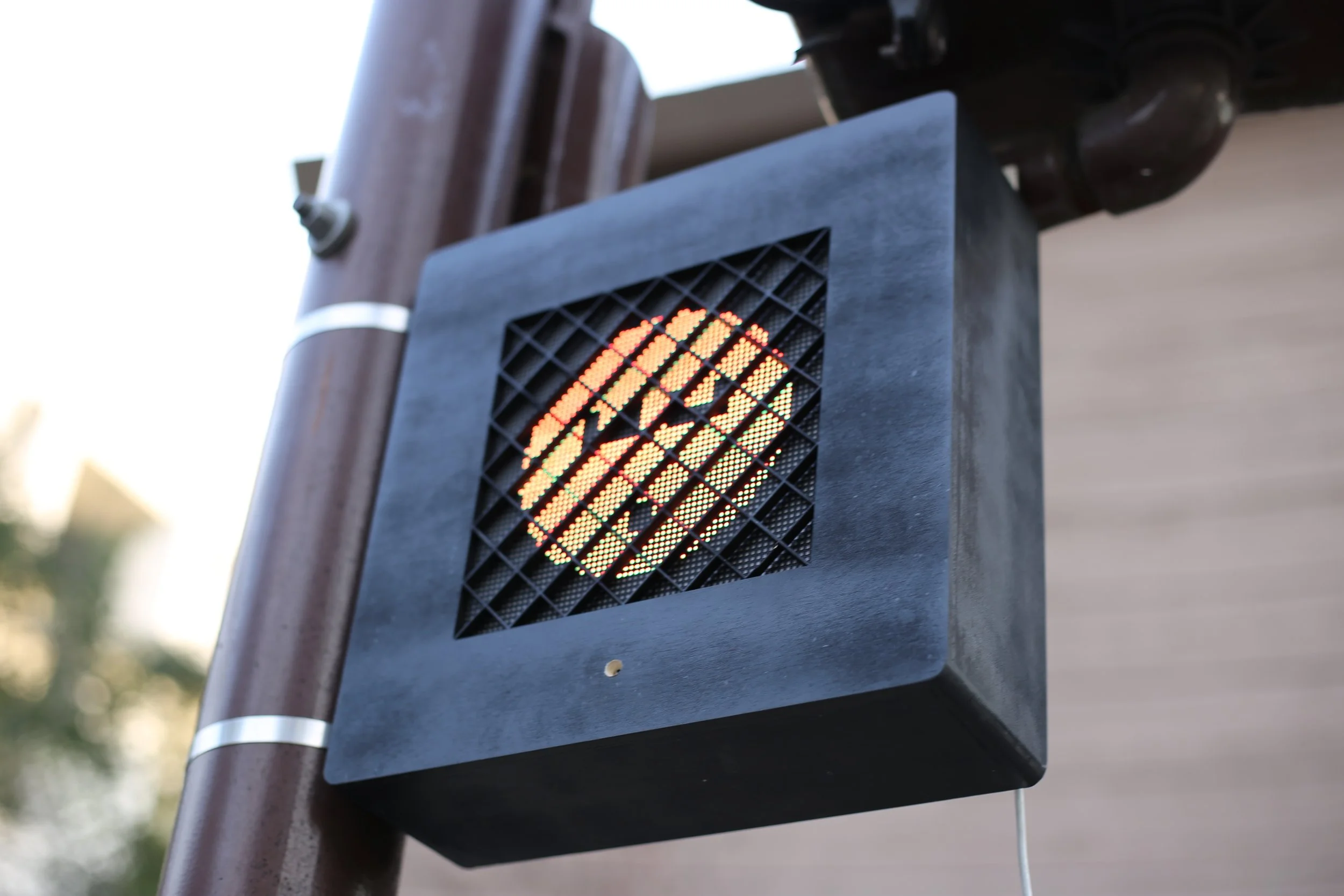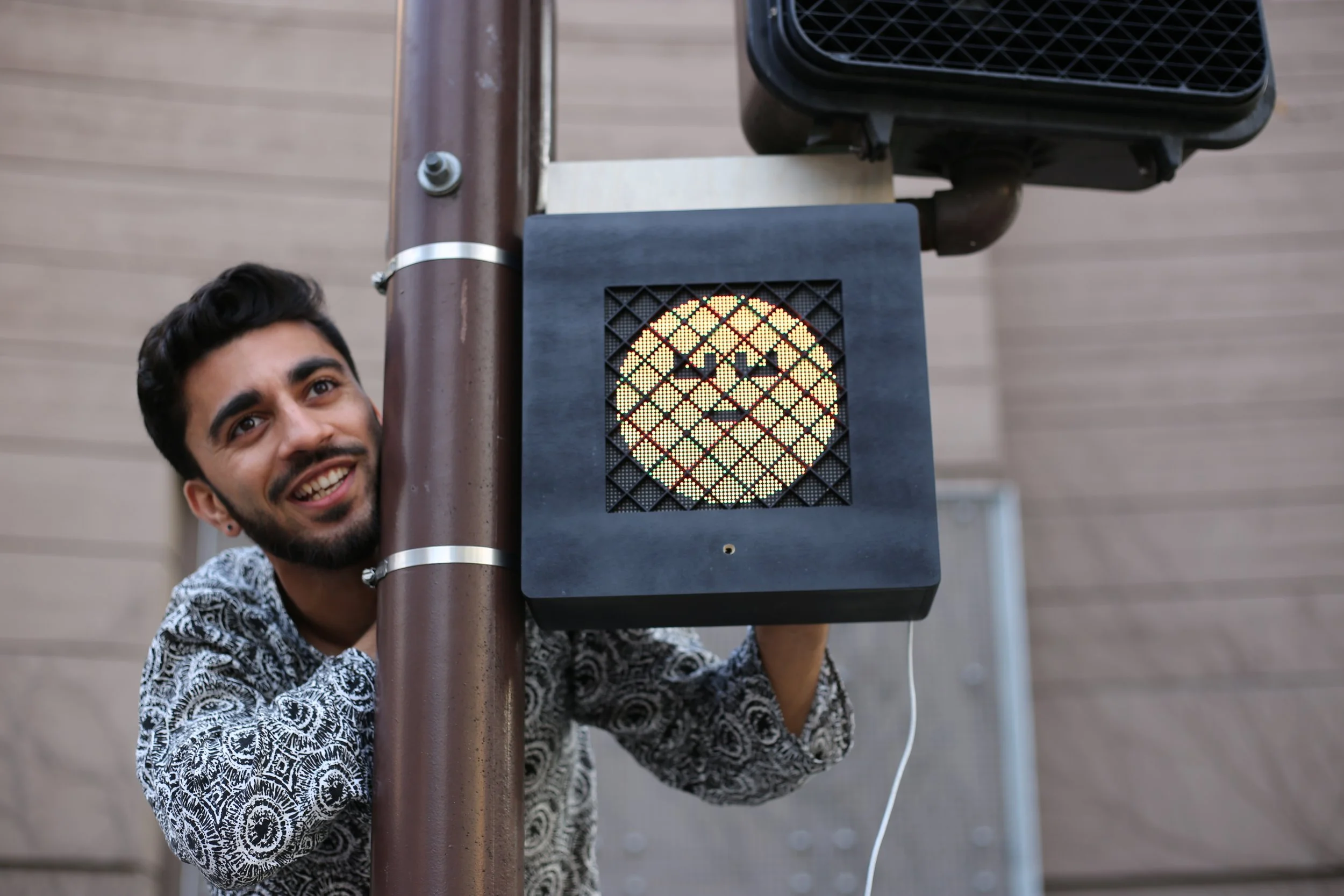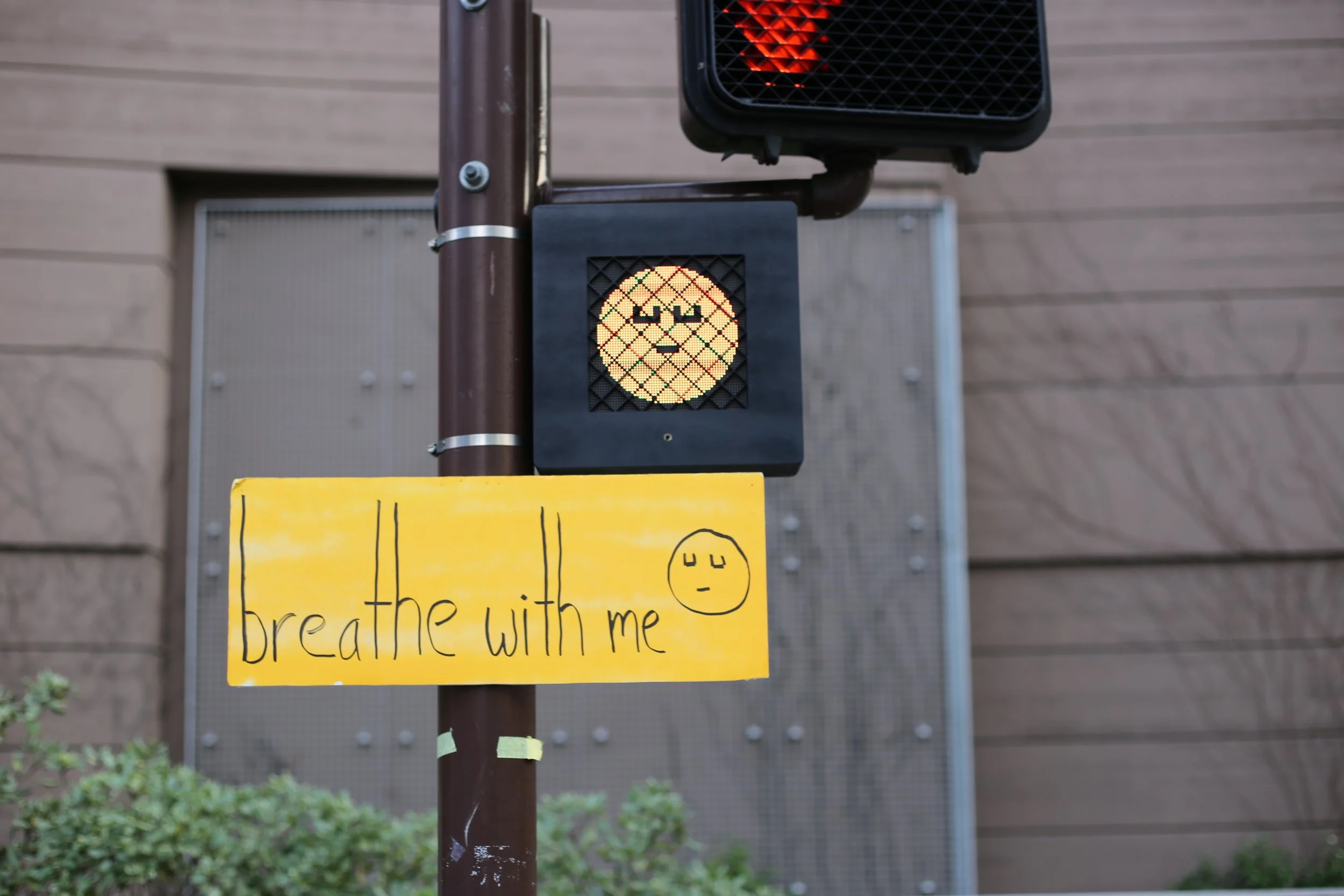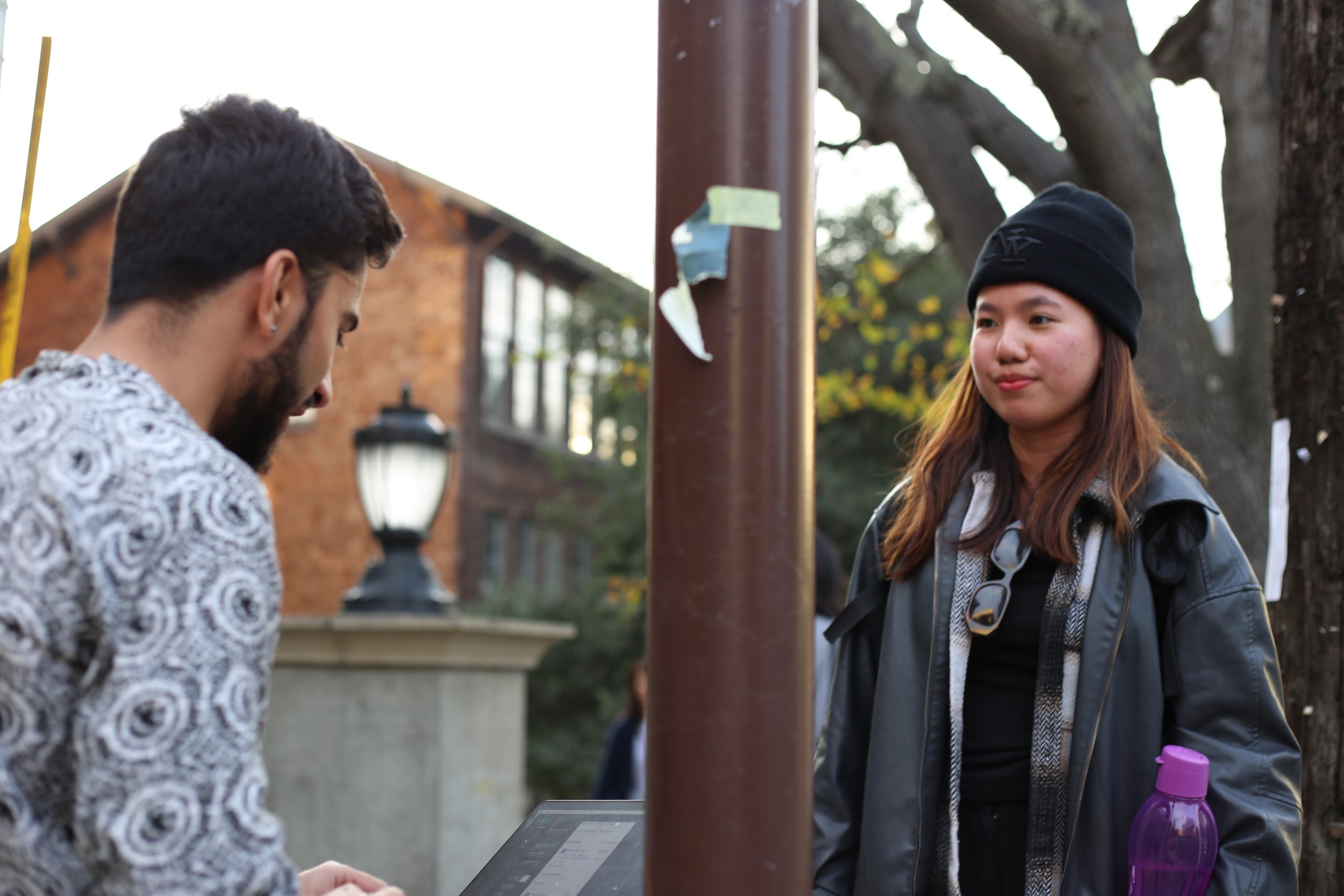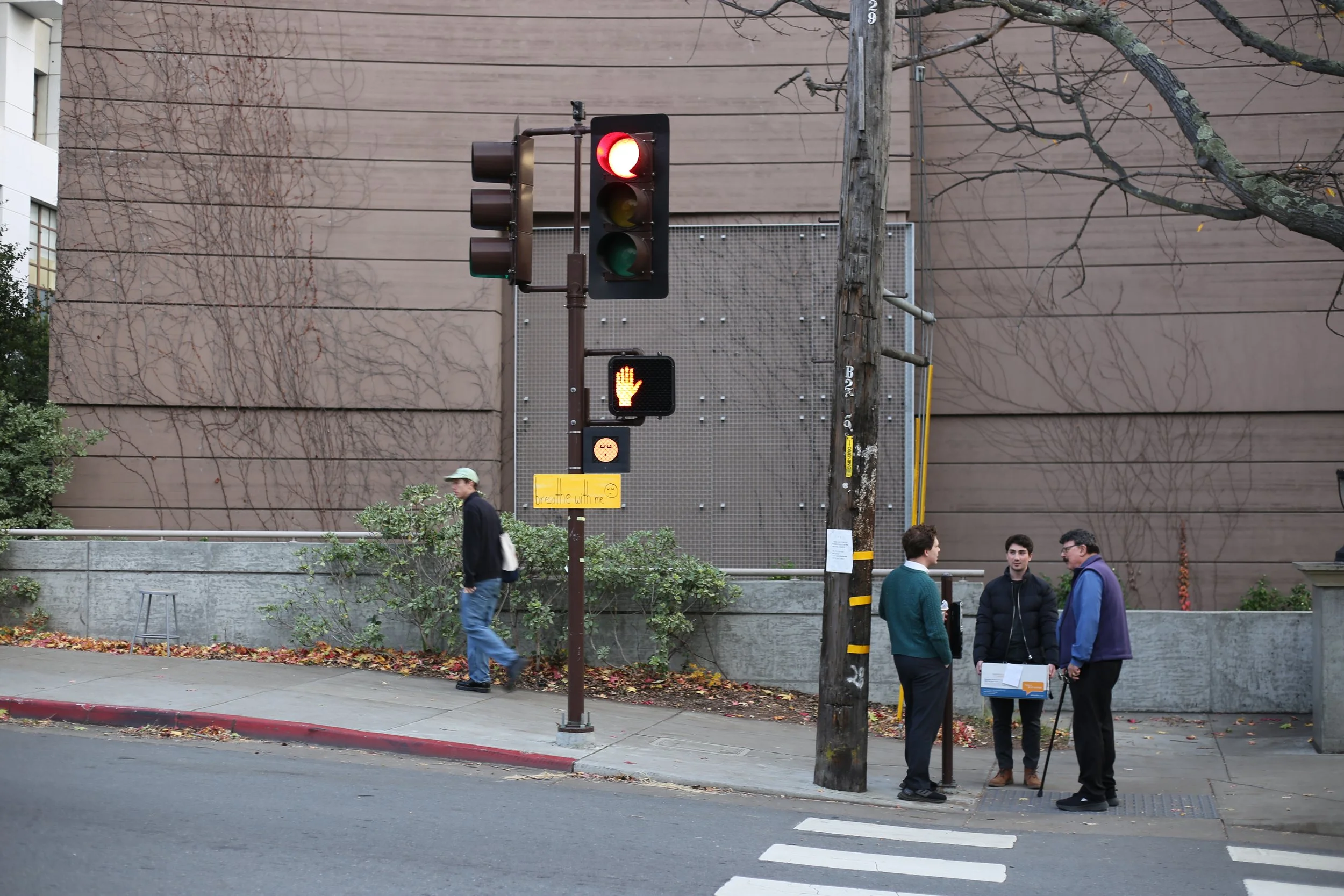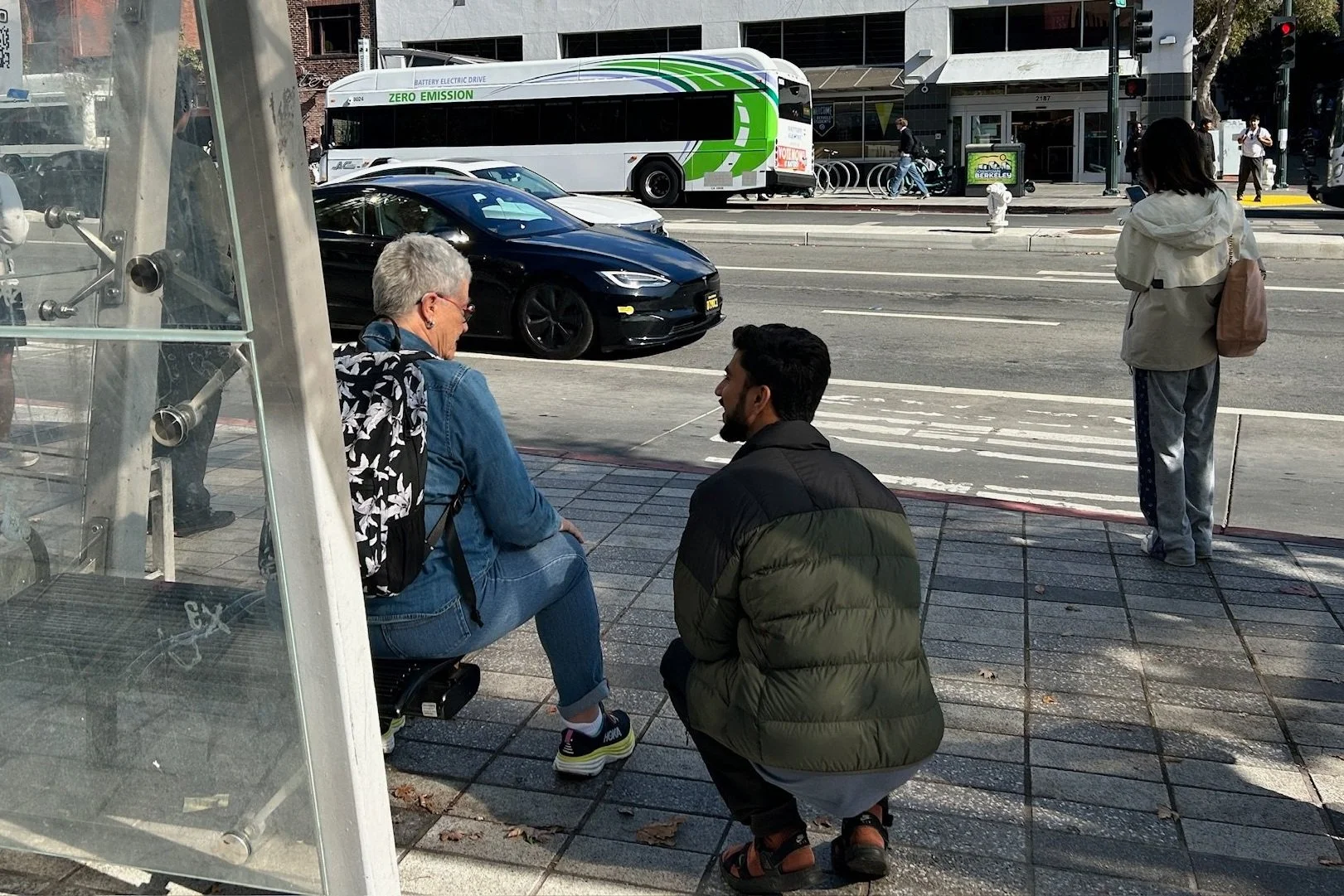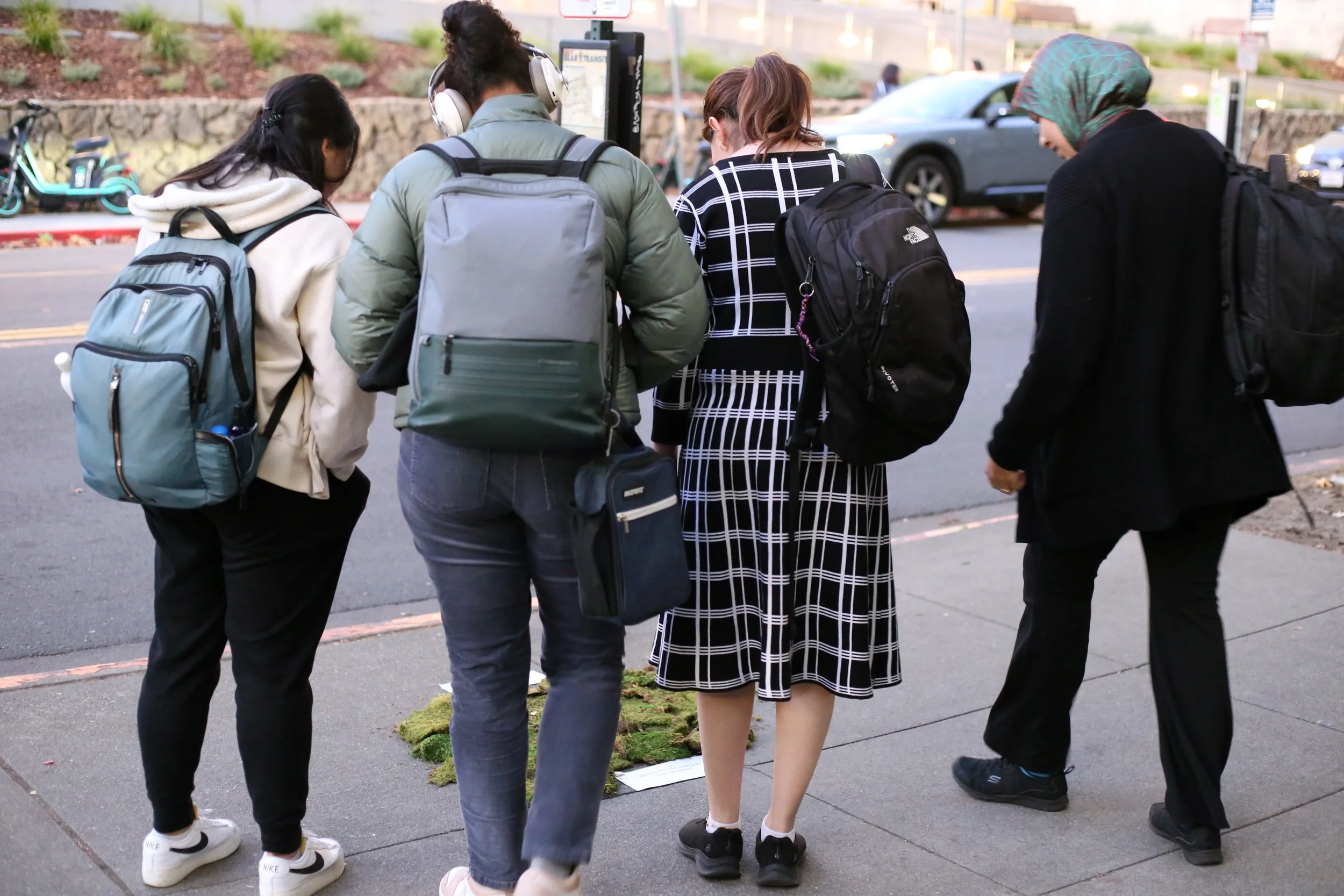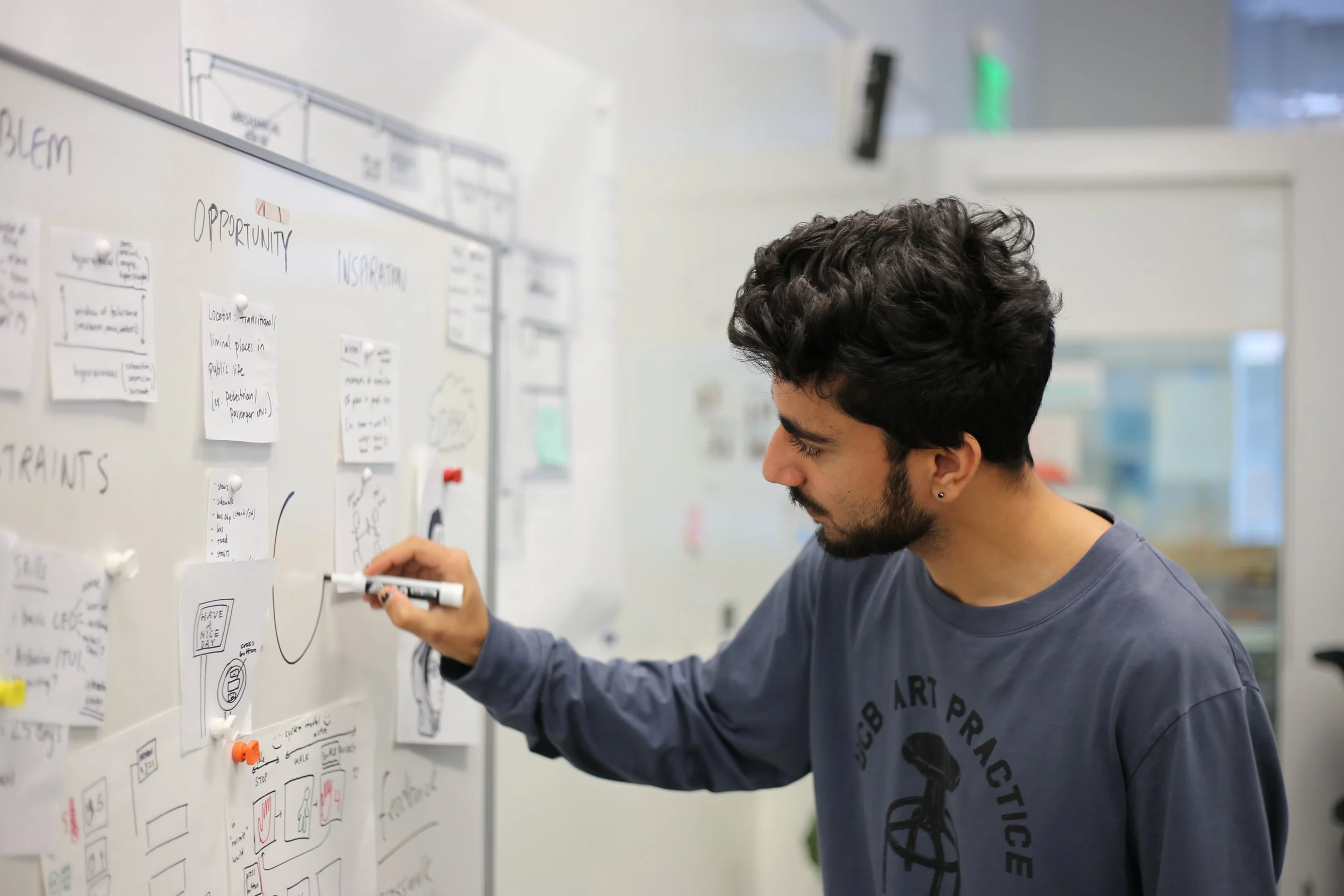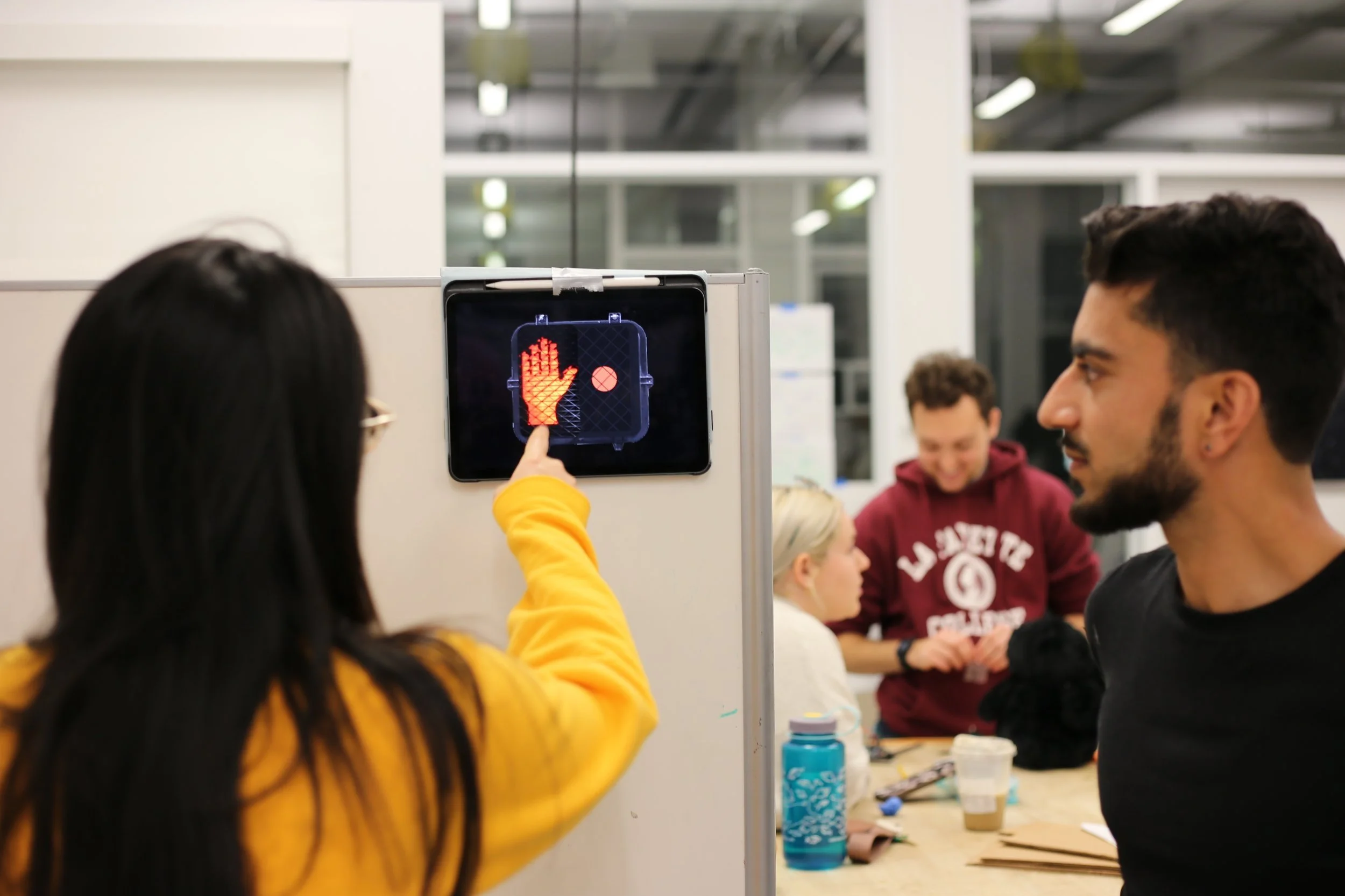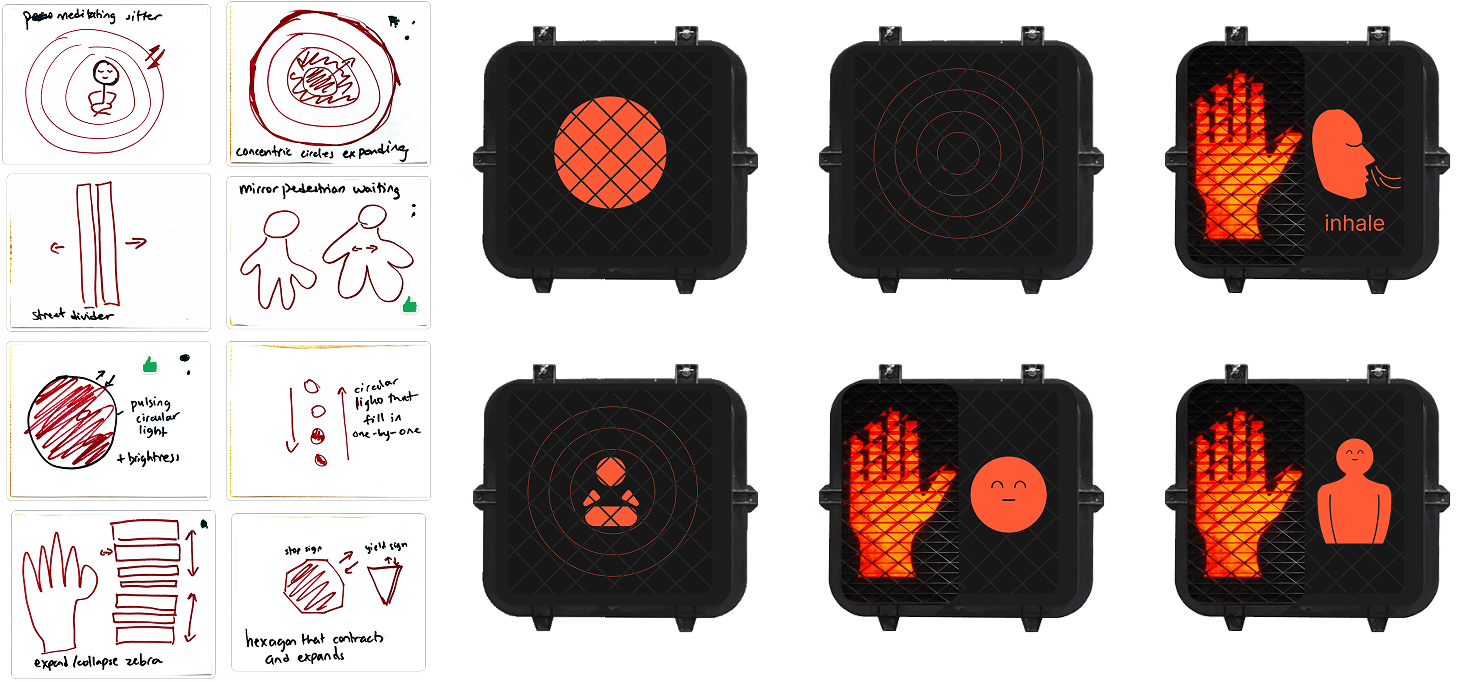Spaces Between
Transforming waiting at the crosswalk into a breathing meditation
Recognition
Featured in SF Design Week 2025
Fast Company Innovation by Design Honorable Award 2025
Timeline
August - December 2024
Project
Master of Design Thesis
My Role
Research
Conceptualization
Fabrication
Background
Who are we not designing wellness resources for?
Learning how to meditate is something you can do by signing up for a class, or downloading an app, or going on a silent retreat! But, who really gets to access these resources?
Approach
Can we bring mindfulness to public spaces?
In an attempt to democratize meditative practice, I sought to bring it to public spaces. I leveraged a combination of qualitative research and field testing to identify small-scale interventions.
Outcome
I created a prototype of a “meditative” crosswalk light and tested it on Le Roy and Hearst Avenue in Berkeley, CA. 100+ people engaged with the exercise, offering a blueprint for how small-scale interventions can lead to long-term behavior change.
An experiential prototype and a framework.
Cities are failing to address our growing mental health crisis.
Challenge
Urban residents are exposed to various health risk factors, such as pollution, overcrowding, and social deprivation, that negatively impact mental health and wellbeing.
With 50% of the global population living in urban cities by 2050, there have been growing demands for cities that prioritize their residents’ wellbeing.
Opportunity
Wellness exercises, such as meditation and yoga, are preventative mental health practices that are proven to reduce stress, anxiety, etc. But they tend to happen behind closed doors, creating exclusionary barriers for city residents.
Placemaking offers a powerful opportunity to engage communities with wellness exercises in public spaces—meeting people where they are, and lifting the burden of having to carve out time and space to care for their mental health.
Focusing on the public commuting experience
Ethnographic Inquiries
Document people's behaviors and attitudes towards ‘waiting’
Visited 3 bus stop locations and observed activities a commuter will engage with while waiting
Interviewed 6 people about their experience waiting at the bus stop
What I Did
Key Takeaway
People are thinking of the future while waiting and disengage with their current environment
Diary Studies
Capture feelings associated with occupying and moving through transitory spaces
Recruited 4 participants for a week-long diary study
Designed a diary template to document entries, writing a short message and capturing a photo
What I Did
Key Takeaway
People crave a sense of privacy in public space (i.e. putting on their headphones, looking for empty seats on bus, )
How might we help people get out of their heads and into their bodies?
Co-Design
I led a co-design session with urban residents, aligning on key insights and inviting them to bring their own lived experiences to the table. Together, we generated over 40 concepts—from musical benches to collaborative murals—workshopping ideas that were provocative and playful while giving commuters the option to engage discreetly.
Lo-Fi Prototyping
To bring these concepts to life, I created low-cost prototypes in public spaces from the ideas generated in the workshop.
I focused on observing how people’s behavior changed and the different ways they responded to the artifacts.
Successful interventions were integrated into people’s routine, required low amounts of effort to engage, and visually intriguing.
Breathing Intervention
The prototypes helped me narrow down the scope of ideas. I focused on interventions that were playful and intuitive, eventually landing on the idea of a breathing animation at the pedestrian crosswalk light.
Prototyping & Testing
I sketched, designed, and tested visual-audio experiences with my peers to narrow down an intuitive breathing visualization.
FRAMEWORK
Small-Scale Wellness Interventions in Urban Spaces
While designing and testing public interventions, I also conducted a literature review to understand prior art and other disciplines that fell within my project.
This led me to develop a framework for how to enact long-term change to a city’s public health with small-scale actions.
What would the world look like if in all our moments of waiting, we took a moment to care for ourselves?
